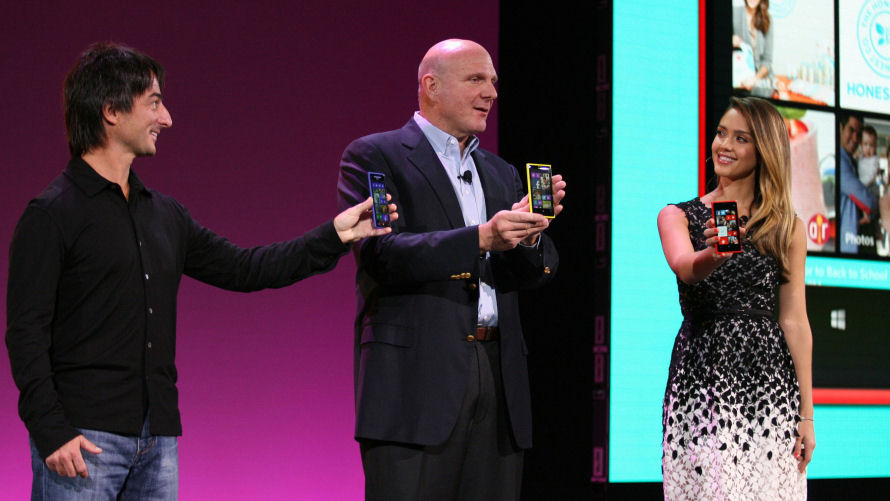From the CNET article:
"There are real-world examples of situations where Nokia was building a phone and keeping information about it secret from us," said Joe Belfiore, a corporate vice president at Microsoft who's in charge of the company's Windows Phone project.
"We would make changes in the software, or prioritize things in the software, unaware of the work that they're doing. And then late in the cycle we'd find out and say, 'If we had known that we would have done this other thing differently and it would have turned out better!'"
That scenario, which Belfiore says is expected with any of Microsoft's hardware partners, is less likely to happen once it owns Nokia's phone business, and it will result in "even better" phones at a faster clip, he said.

Belfiore (far left) at the launch of Windows Phone 8
Microsoft and Nokia have, in the past, talked about their ability to work closely together. For example, the customisations necessary to make the Lumia 1020 possible were made by both companies. However, it is apparent that Nokia took the lead role in this process and was working more closely with Qualcomm (on the imaging processing stack) than it was with Microsoft.
A good example of the limitations of the working partnership are issues around the limited access to full resolution images and relatively slow performance of the Nokia Pro Camera app. While there are mitigating factors for both of these, some of the issues could have been avoided by closer collaboration (e.g. start up time for Pro Camera would not be an issue if the standard Camera app could be replaced altogether).
The CNET article also articulates a number of other examples where Nokia has provided input. A well known example is the exchange of files over Bluetooth, something that was added in Windows Phone 8, but was only possible on Windows Phone 7 after Nokia added a custom app (and even that require firmware updates). Microsoft had originally considered Bluetooth file transfer an unimportant feature because it was not a key use case in its home market and did not recognise, or understand, that it was considered an important feature in other markets.
"In developing countries, end users share files over Bluetooth commonly, and in the US people just don't do that," Belfiore said. "We didn't even have that feature, and we didn't even understand or appreciate the degree to which it was critical."
This understanding of the many facets of the mobile market is inherent to the way Nokia operates because it has been providing mobile devices to its customers for more than two decades. The institutional knowledge that Microsoft will gain from its purchase of Nokia's devices business should not be under estimated.
The hardest challenge for Microsoft in its absoprtion of Nokia's devices business will be the preservation and cultivation of this knowledge, and the people and culture that goes along with it.
